Table of Content
Table of Content
Blog Summary: Change is the only constant in the ever-evolving world of mobile apps. A new wave of mobile app trends can be seen in a very short time span. With 5G knocking on the doorstep, a new horizon of technologies like AR\VR or AI has arrived and will flourish in the future. This blog explores the top 15 mobile app development trends that will further revolutionize the mobile app industry, which can be a great bet in the future.
The usage of mobile app is increasing day by day. 87% of smartphone users spend their mobile time on apps. According to a report by Statista, the mobile app market revenue is on a boom and is expected to touch USD 755.50 billion by 2027. With new technologies stepping into the scene, this will shoot higher in the sky.
This is for sure that mobile apps are shaping today’s digital landscape, and you can’t escape it. If you are using “WhatsApp” for your business, it is a well-accepted mobile app. Similarly, the Coinbase app for cryptocurrencies has made the buzz already with blockchain at its core.
With time, mobile apps have transformed the global scenario in every aspect of our lives, be it business, shopping, or as mundane as groceries. If you are into mobile app development or researching to augment the latest mobile app trends or features into your upcoming mobile app development project, this blog will be worth a few minutes.
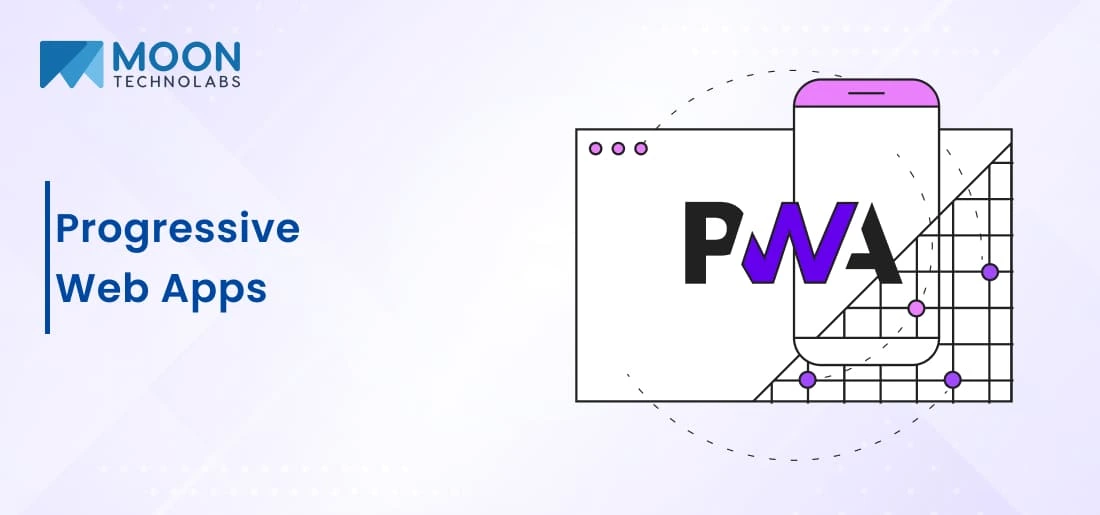
PWAs offer fast load times and smooth navigation to enhance user experience. They leverage caching techniques to enable quick access to the content even in lower internet connectivity areas. Another advantage is they are highly responsive and adaptive to various screen sizes, ensuring a consistent visual experience and capturing the market widely.
The global market size of PWAs was USD 1.13 billion in 2019 and is expected to reach USD 10.44 billion by 2027. This is one mobile application development trend that is capturing global market share.
PWAs consume less data as compared to native apps. Effective data caching and the capability to load particular content rather than the entire app are used to achieve this. Users can thus enjoy a flawless app experience with PWAs. They function well in locations with poor internet connectivity because of features similar to native apps, but with 5G connectivity, performance will be considerably better.
The advent of 5G transformed the communication industry. Internet connectivity is functional in everything we come across, like mobile payment, Siri or Google as IoT, and AR\VR in mobile apps. It has become instrumental in the mobile app industry to leverage the different mobile app trends.
A report on global 5G subscriptions by Statista shows that as of 2023, the total estimated 5G subscriptions worldwide is 1.9 billion. It is estimated to increase to 2.8 billion by 2024 and 5.9 billion by 2027.
The primary reason for its popularity in such a short time is its faster download speed. The greater bandwidth of 5G ensures better video performance with fewer lags and interruptions in the mobile apps. 5G has 10x lower latency and decreased response time, enhancing mobile app user experience with fewer lags.
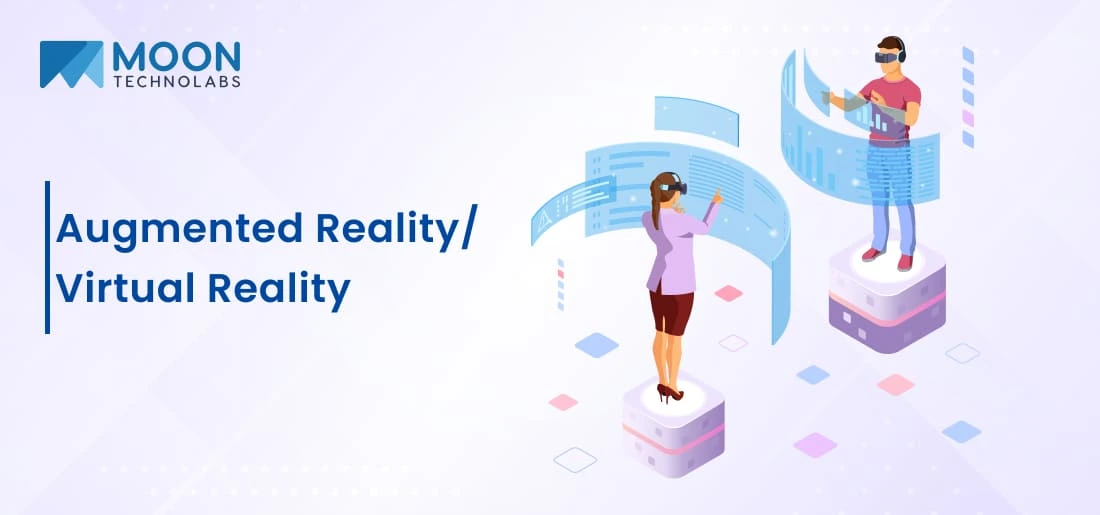
5G is equipped with all the needs to leverage AR\VR. 5G is functional in creating augmented reality to facilitate the user into an engaging and intuitive experience. Mobile app development trends like AR\VR have ushered into education, healthcare, tourism, and many other industries.
Suppose you are looking for a center table in IKEA. Using their AR\VR feature, you can see the table in your room. AR\VR is breaking the market with a revenue of USD 31.12 billion in 2023 and is predicted to grow with a CAGR of 13.27% to USD 52.05 billion by 2027.
Virtual reality is another technology that is altering the field of mobile app development, especially in the domain of gaming apps.
With 5G connectivity and AR\VR in the picture, the next widely adopted mobile app trend is IoT. We are very familiar with the “Hey Siri” or “OK Google” commands nowadays. These technologies have renamed the whole electronic world and have made them smarter. Hence, Smart Homes, Smartphones, and other Smart devices.
The stats say that a report on IoT market analysis by Global Data projects that in 2023, the IoT market will be worth $925.2 billion, and from 2023 to 2026, it is anticipated to rise at a CAGR of 13%.”
IoT is an umbrella term used to describe the ecosystem of devices that interact with each other to facilitate user convenience. This has been a very innovative transition in the mobile app development industry. It gives users automated control of IoT devices via mobile apps.
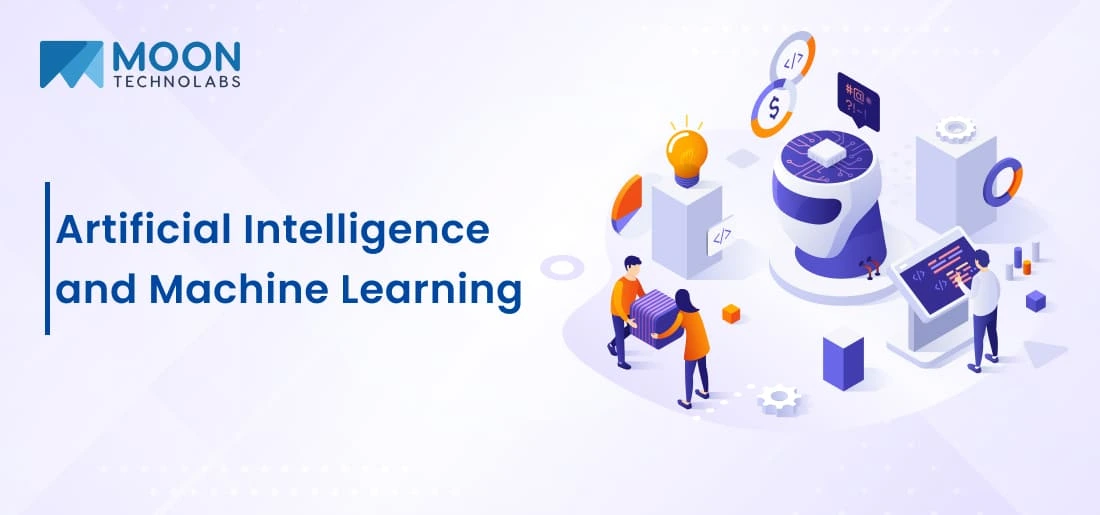
AI\ML integration in mobile apps or IT systems helps give tasks an intuitive and automated edge. The integration of AI\ML in mobile app development enhances user experience and convenience.
It was a fanboy moment when “Jarvis, the AI” processed a new element for Iron Man in the movie. That was just a glimpse of what AI can accomplish. Intelligence is artificially created with the aid of the language of machines to feed information, which assists humans in problem-solving and promotes convenience in their lives.
According to Market Research Engine’s report on the AI market, the market for Artificial Intelligence will reach $190 billion by 2025, growing at a CAGR of 37%. Some of its top-rated and practical integrations are driverless cars, facial recognition, chatbots, and many other such systems.
Chatbots are the finest example of Artificial Intelligence integration in mobile app development. As chatbots are powered by AI, their responses are evolving and seem to be human-like. It is one of the factors that contribute to the growing trend of artificial intelligence.
Chatbots have advanced significantly over time. It’s evolving into a new touchstone for customer care. The worldwide chatbot market is estimated to reach a revenue of USD 454.8 million by 2027, opening a new avenue for AI and chat support in the future.
![]()
A new advancement in the field of mobile app development is beacon technology. It uses Bluetooth low-energy transmissions to connect to mobile devices nearby and transmit signals. Mobile applications that make use of beacon technology offer the best services to the mobile devices connected nearby.
The market for beacon technology is growing at a growth rate of 59.8%, as per Statista data. Its estimated value will increase by US $56.6 billion by 2026.
In order to create apps for retail, healthcare, real estate, and other industries, mobile app development companies are quickly adopting this technology. By teaming beacon technology with mobile payment through mobile apps, you can offer convenience to users in their hands.
The use of mobile payment has become an increasingly popular mobile app trend, especially during and post-COVID. A report by Statista on the number of digital payments before COVID in 2018 is USD 620.9 billion, which drastically rises to USD 1157.3 billion in 2022 and is estimated to soar up to USD 2121.6 billion in 2026.
Users can use their smartphones, tablets, or wearable devices to pay for goods and services via their mobile wallet apps. This technology lets you quickly and securely make payments without the use of cash or cards.
Businesses may profit from this technology since it enables them to work more productively and give customers a smooth experience. Mobile payments will become more popular and by integrating it as a feature in your mobile app, you can leverage tech benefits and gain effortless user experience.
Partner with us to create a mobile app with an integrated mobile payment feature and make your payments hassle-free.
Hire Mobile App Developers
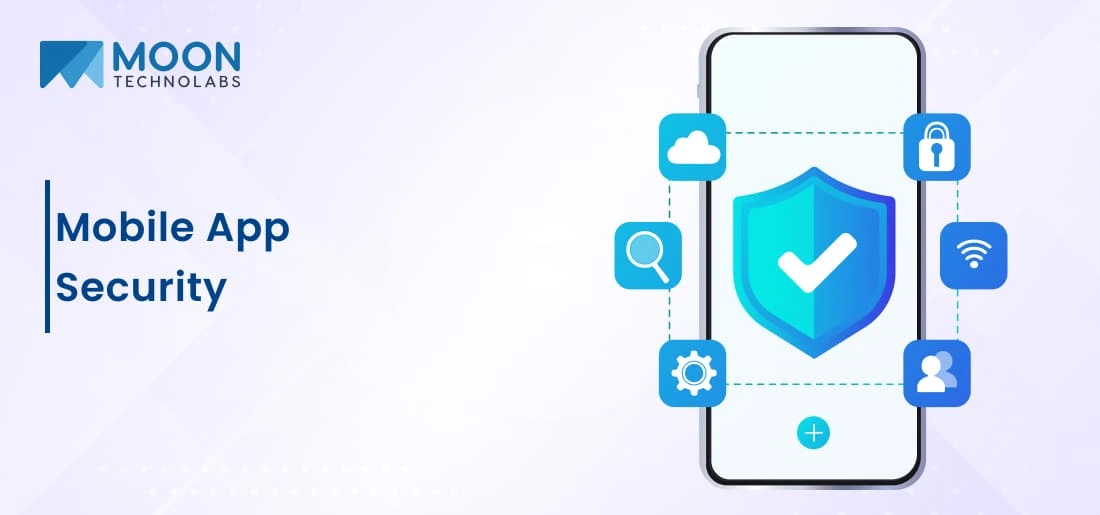
Mobile app developers need to have strong security measures in place to protect user data if they want to stay on the leading edge of the game. Everyone is at risk from cybercrime. Nobody is unaffected, not even a company or a content creator.
You cannot afford to take any shortcuts during the mobile app development process when it comes to app security. 81% of mobile apps tested by Promon, an app shielding company had zero defense against attacks. Gaming apps are an easy target for intruders to offer bait. If you sell apps, then you understand that customers place a high priority on mobile app security.
The usage of cloud storage technology and cloud computing can enhance the functionality of mobile apps. Apps can execute complex tasks and save data in the cloud rather than on the user’s device. It is a cost-effective cloud development option for IT business.
One example of a cloud-based application is Dropbox, which is very widely used among the techie community. With the increasing popularity of such apps, the cloud market is growing day by day.
A report from MarketsandMarkets Research shows that the estimated growth rate of the cloud-computing market is 17.9% by 2027. If your company needs internal workforce apps or business apps, then this mobile app development trend is worth keeping an eye on.
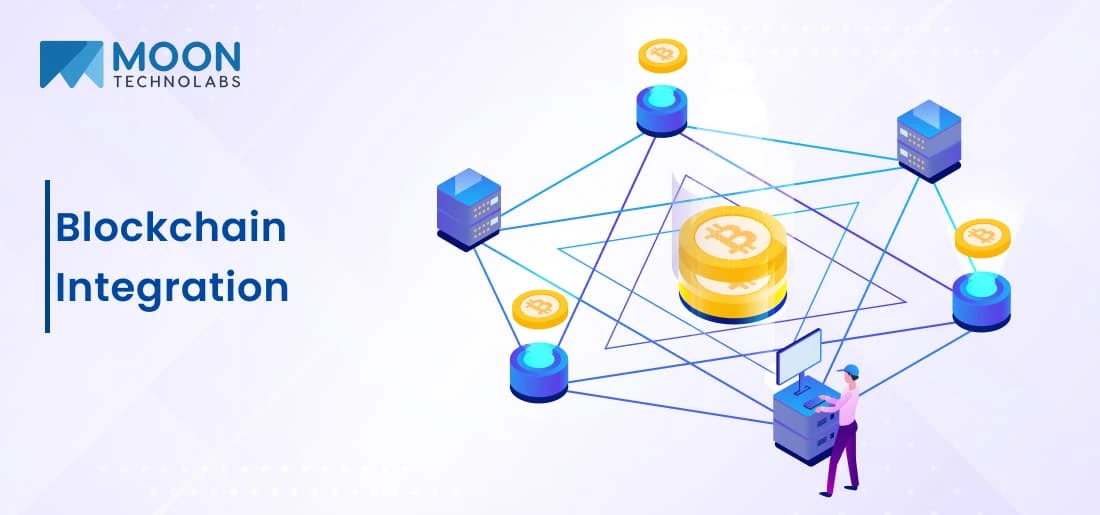
Blockchain revolutionized the world with its success in the crypto market. But its features like decentralized architecture, data security, and many others can be game-changing in mobile apps. Blockchain is a distributed, transparent, secure digital balance sheet for all transactions.
With increased data security and transparency, the transactions, data transfer, or exchange of information becomes a secure process.
A data from Fortune Business Insights shows that the global blockchain market size will be worth $163.83 billion by 2029 and increase at a CAGR of 56.3%. Digital payments and mobile wallets have also witnessed a sharp increase in use. Now is the best time to incorporate blockchain technology into mobile apps and take full advantage of its capabilities, especially post-COVID.
Before dipping your toe into the world of blockchain development solutions, you should be certain of the business requirements of your application because blockchain requires handling a lot of data.
To increase revenue, businesses are using mobile apps. They are a convenient way of payment utilization and organization. According to a report on retail m-commerce in the US, it has done USD 360 million+ sales, estimated to double fold by 2025 to USD 710 billion.
E-commerce was a trend earlier, and now mobile commerce (m-commerce) is the new trend. It is imperative to have a mobile commerce app if you want to compete and lead the market in today’s tech-inclined scenario. Every small or big business is either present on Amazon or is competing with them to stay in the game.
Leverage the cutting edge technology to ease up client life and increase your sales.
Go mobile
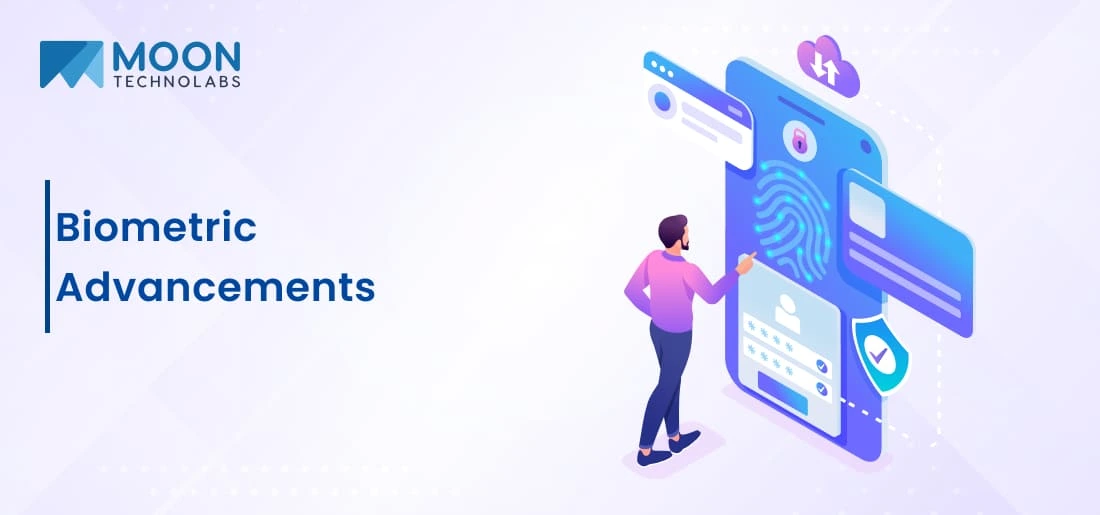
When Apple launched the facial recognition feature for the first time ever in mobile phones, it was the dawn of biometric advancement into mobile application development. Today, applications like Tik-Tok, Snapchat, and Instagram have facial recognition features, and the filters based on them have become a trend in such entertainment apps.
Some biometric features that are also used widely in user authentication are:
According to an analysis by IndustryARC, the global mobile biometrics market, will increase at a CAGR of 20.2% between 2021 and 2026, reaching $75.3 billion.
It enhances personalization and simultaneously adds a layer of security. Biometric recognition comes with a single-factor or multi-factor authentication to secure user data while improving user experience.
Quantum computing uses all the conditions between 0’s and 1’s to give exceptional performance of mobile app using the superposition phenomenon. They implement “qubits” as the functional elements. Quantum technology uses quantum machines for mobile app development.
Quantum computing’s market was estimated at USD 10.13 billion in 2022, and it is likely to increase to USD 125 billion by 2030, with a predicted CAGR of 368.90% by a quantum market size report.
Out of many one of the futuristic trends in mobile app development is connecting the human brain with technology. The next level of tech advancement is the neural interface and brain-computer interfaces, which is a direct communication between the human brain and machines.
According to a report by Future Market Insights, the global BCI market is expected to reach US$ 1.8 billion in 2023. A growth rate of 13.6% is predicted by 2033 in the BCI market.
Some of the applications like Mind-controlled mobile apps, Gaming and Entertainment apps, and Mental health apps implement neural interfaces, and BCI widely for their benefits. Although the technology is in the early stages of development and application, it holds great future potential for the mobile app industry.
The mobile app landscape is now poised for innovation and transformation. Embracing these trends and technologies can give businesses a competitive edge. In spite of multiple apps present in the market, only a few succeed as they work on customers’ pain points. 5G is the new tech advancement that boosts a spectrum of trends like AR\VR, Chatbot support, Biometric authentication, and many others.
It is a wise decision to join hands with an experienced app development company to create apps that truly resonate with users in this rapidly evolving digital era. Creating an app that resolves a problem or entertains them can achieve great heights quickly. Collaborating with an app development agency can be the key to unlocking the full potential of these trends and bringing groundbreaking apps to life.
01
02
03
04
05
Submitting the form below will ensure a prompt response from us.